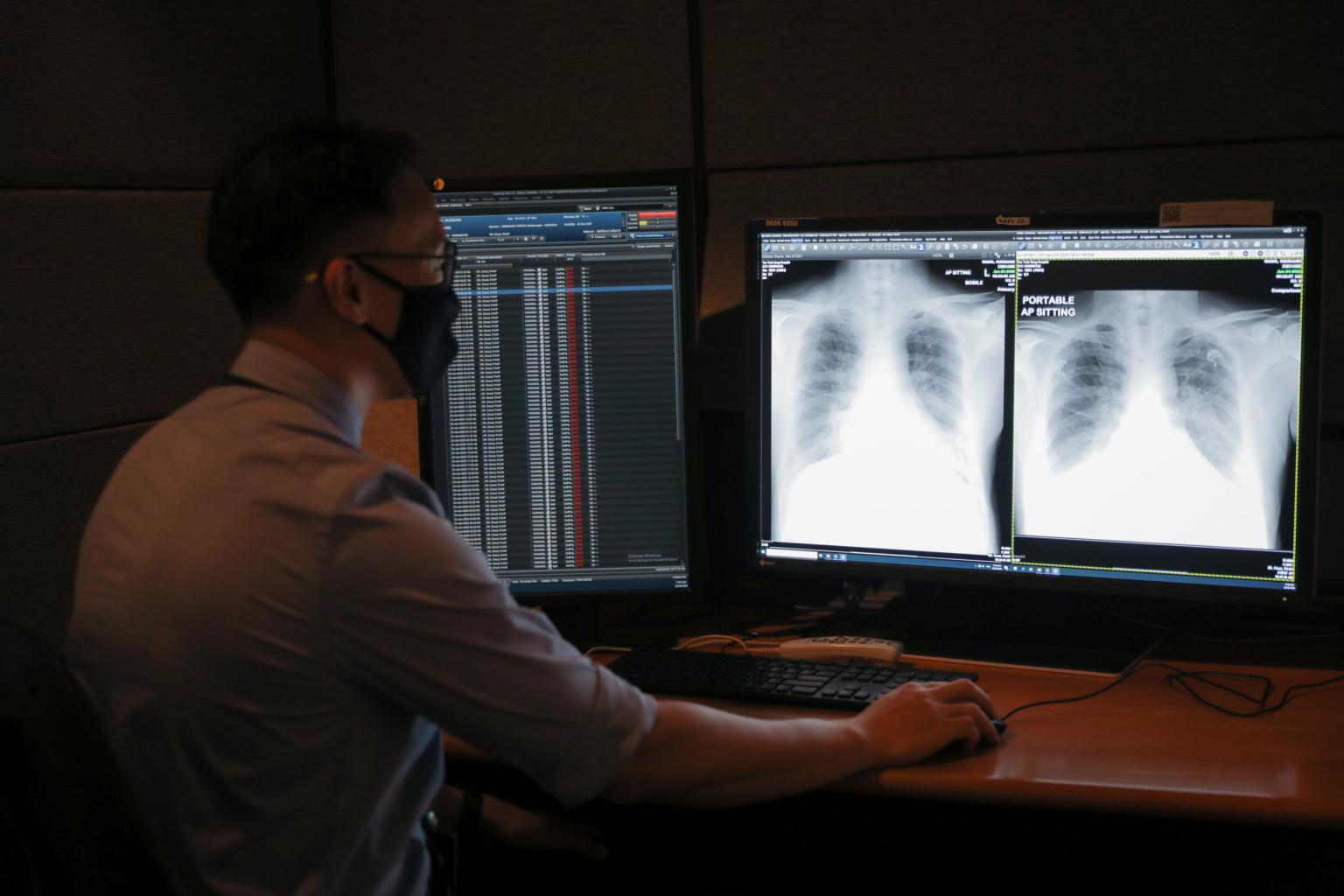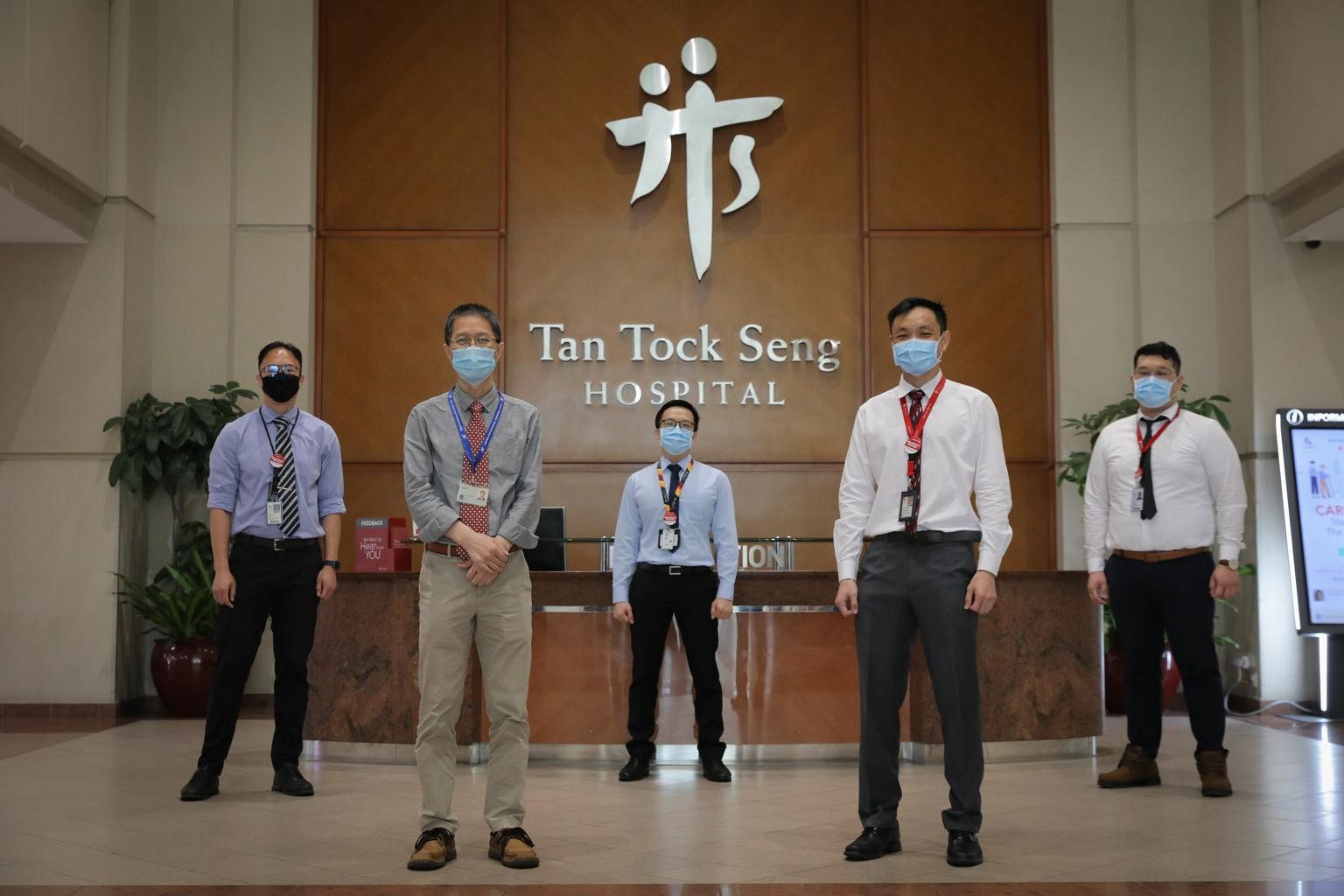AI-powered tool detects lung infection in chest X-rays quickly during Covid-19 screening
Sign up now: Get ST's newsletters delivered to your inbox

AI tool RadiLogic can analyse an X-ray image within three seconds and highlight abnormal chest X-rays on a computer quickly.
ST PHOTO: ONG WEE JIN
SINGAPORE - An artificial intelligence-powered tool has been developed to detect abnormal chest X-rays quickly during Covid-19 screening in the National Centre for Infectious Diseases (NCID).
With rapid flagging of pneumonia cases, doctors can intervene earlier, as more severe findings on chest X-rays may mean an urgent need for supplemental oxygen therapy and ventilation for patients.
Suspected Covid-19 patients who have pneumonia must be admitted to the hospital. Two-thirds of hospitalisations for Covid-19 patients were admitted to NCID.
Everyone who visits the NCID Screening Centre who is suspected of Covid-19 or who has respiratory symptoms must do a chest X-ray. Previously, each X-ray image was reviewed by a radiologist within an hour. The radiologists had to analyse each X-ray result in sequence, which was time-consuming.
The screening centre saw 200 to 300 X-ray images a day during the peak of the pandemic in April. Currently, there are 100 images coming in each day.
Now, the AI tool, called RadiLogic, can analyse each X-ray image within three seconds and highlight abnormal chest X-rays on a computer quickly, which allows radiologists to report such cases at 20 per cent less time than the usual, after each patient completes the procedure.
The tool has an accuracy of up to 96.1 per cent, and has been rolled out in the screening centre since May.
"The AI tool is performing close to human capabilities and it helps us prioritise the workflow so that it enhances our efficiency and our diagnostic confidence," said Adjunct Associate Professor Tan Cher Heng, senior consultant at Tan Tock Seng Hospital's (TTSH) Department of Diagnostic Radiology. He is also one of the team members who developed the tool.
RadiLogic is not the first AI system for chest X-rays, but the team believes that it is the first chest X-ray AI tool developed and deployed for Covid-19 in Singapore.
Programmed through deep learning, RadiLogic was fed with 1,000 anonymised abnormal chest X-rays from Covid-19 patients and 4,000 anonymised normal chest X-rays to train it to detect pneumonia accurately.

White patches or haziness over parts of the lungs in the X-ray image indicate lung infections and pneumonia. The bigger the patches, the more serious the infection.
"The value of the chest X-ray is to help the clinician determine the severity of Covid-19 because when the patches start turning up on the lungs, these patients may deteriorate, and therefore, through the AI tool, we want to catch patients quickly and make sure they are properly observed," added Assoc Prof Tan.
The tool was developed by radiologists from TTSH and researchers from the Agency for Science, Technology and Research's (A*Star) Institute of High Performance Computing, and Institute for Infocomm Research.
The collaboration happened through an Open Innovation Challenge held by the National Healthcare Group's Centre for Medical Technologies and Innovation, Enterprise Singapore, and A*ccelerate, A*Star's commercialisation arm.
The team is hoping to deploy the tool to Covid-19 screening sites such as Community Care Facilities or border control checkpoints, where radiologists are not on-site, and other hospitals such as Singapore General Hospital.
The team is also working to enhance the tool's AI capabilities in a few ways. One is to train the system to distinguish between Covid-19 pneumonia and other types of lung infection, while another one is to zero in on abnormal regions and indicate the probability of pneumonia.


